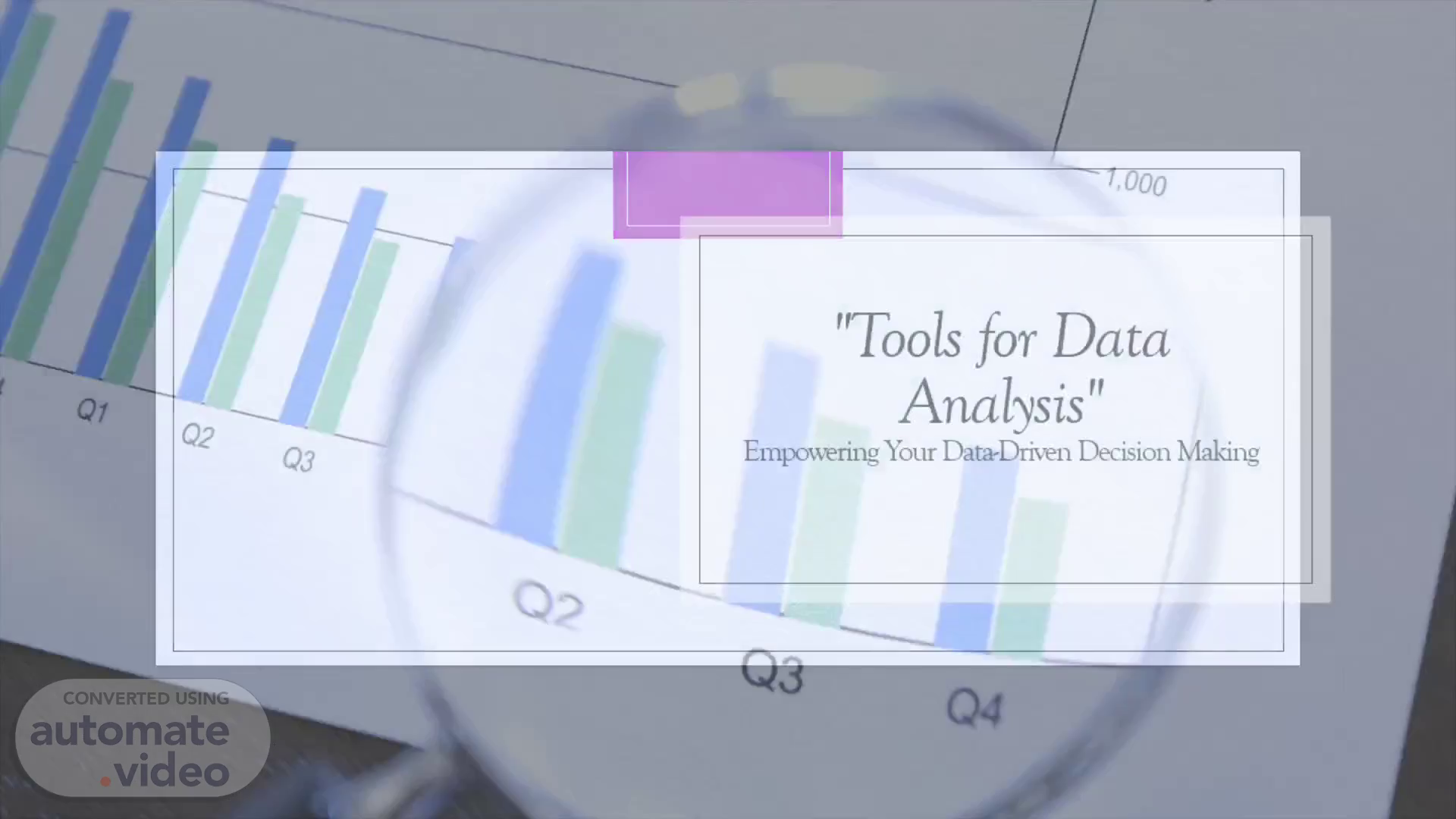
"Tools for Data Analysis" Empowering Your Data-Driven Decision Making
Scene 1 (0s)
[Audio] Welcome to Topworker. Today we will be discussing about Tools for Data Analysis..
Scene 2 (8s)
[Audio] data analysis is like a treasure hunt through data. It's the process of meticulously examining, cleaning, transforming, and interpreting data to reveal valuable insights that can drive your decisions. The importance of data analysis in decision-making"Why is data analysis crucial? Well, it's the secret sauce for making data-driven decisions across diverse industries. It equips businesses to understand customer behavior, optimize operations, and refine products and services. The need for effective tools in data analysis"But here's the twist. With the sheer volume and complexity of data these days, you need more than just a magnifying glass; you need specialized tools for efficient analysis. These tools enhance accuracy, speed, and scalability..
Scene 3 (1m 4s)
[Audio] Let's open the toolbox and take a look at the various categories of data analysis tools. Our first category is Statistical Analysis Tools, which are like the detectives of data analysis. They summarize and analyze data, often involving descriptive and inferential statistics. Next up, we have Data Visualization Tools. These tools are the artists; they transform data into visual representations, making it easier to recognize patterns and gain insights. Machine Learning and AI Tools act as our data assistants. They employ algorithms to predict outcomes, automate decision-making, and uncover intricate patterns..
Scene 4 (1m 52s)
[Audio] Last but not least, we have the Big Data Tools, the heavy lifters. They are designed to handle vast datasets, addressing challenges related to volume, velocity, and variety..
Scene 5 (2m 8s)
[Audio] Let's zoom in and take a closer look at Statistical Analysis Tools. hink of these tools as the Sherlock Holmes of data analysis. They provide a structured approach to data analysis, making them invaluable for tasks like hypothesis testing, regression analysis, and identifying significant trends. "Two notable examples in this category are R, an open-source language known for statistical analysis and data visualization, and SPSS, a user-friendly software package commonly used in social sciences and market research. Statistical analysis tools have various applications, from market research to healthcare. Their advantage lies in their ability to derive insights from data with confidence and statistical rigor..
Scene 6 (2m 58s)
[Audio] Now, let's shift our focus to Data Visualization Tools. hese tools are like the magicians of data analysis. They take raw data and transform it into engaging visuals that help us understand complex information. A few well-known tools in this category include Tableau, celebrated for its interactive dashboards, Power BI, a powerful business intelligence tool, and D3.js, a JavaScript library for crafting custom data visualizations. Data visualizations aren't just about aesthetics; they are essential for clarity. They make data more accessible, allowing stakeholders to quickly grasp trends, outliers, and relationships..
Scene 7 (3m 46s)
[Audio] Let's jump into the world of Machine Learning and AI Tools. These tools are like the wizards of the data world. They automate the data analysis process, predict outcomes, and help us navigate the realm of predictive analysis. In our toolbox, we have Python, celebrated for its extensive libraries and frameworks, TensorFlow, a robust deep learning framework, and scikit-learn, a versatile machine learning library. Predictive analysis involves peering into the future using insights from the past. It's used in various applications, such as predicting customer churn, stock prices, and equipment failures..
Scene 8 (4m 30s)
[Audio] Our last stop is in the domain of Big Data Tools. Big data is like a rapidly flowing river of information, too large, complex, and fast-moving for traditional analysis tools. It's common in industries like e-commerce, social media, and finance. To conquer big data, we have tools like Hadoop, a distributed data processing framework, and Spark, celebrated for its speed and prowess in processing large-scale data analytics and machine learning tasks. Big data tools are vital for industries dealing with vast and rapidly growing datasets. They enable organizations to extract valuable insights quickly and efficiently from the ever-expanding data sources..
Scene 9 (5m 17s)
[Audio] Feel free to reach out with any questions or further inquiries. We're now open for discussion and your valuable input. Thank you for your attention..